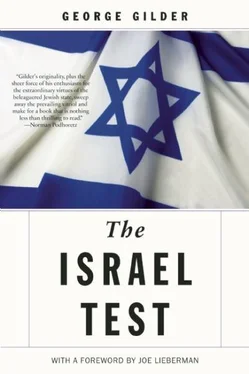In 1938, one of the youngest members of the Council on Foreign Relations (to this day the library is named after him), my father famously and impertinently confronted John Foster Dulles, later to become secretary of state under President Eisenhower, for believing that some rapprochement between Germany and the United States was still possible. In sophisticated circles there persisted a fashionable belief, fostered in part by Bloomsbury economist-philosopher John Maynard Keynes, that Germany was essentially a victim of World War I and of the postwar settlement and reparations. There was a notion abroad that Germany had earned by this grievance a moral edge against the winners of that horrendous conflict.
My father was having none of it. In a conviction that air power would be decisive in the coming war, he took up civilian flight training to be ready while working as an executive trainee at his grandfather’s firm, Tiffany and Company. My father died in 1943 commanding a squad of B-17 bombers, called Flying Fortresses, on the way to the war in Europe. The entire squad was lost to what was suspected to have been sabotage at the Gander, Newfoundland, fueling station.
A piano teacher and concert pianist, my mother, Anne, after the war became a close friend of the famed virtuoso William Kapell and taught him how to drive a car in the Berkshires, where he practiced his incandescent musical art in a converted red barn next to our house. Only six or seven at the time, I mainly remember how loudly he played compared to my mother. We were all shocked and dismayed by his death in a plane crash in San Francisco while returning from a triumphant concert tour in Australia. When tapes of Kapell’s performances in Australia were rediscovered early in this new century, the event was front-page news in The New York Times .
Several years younger than my mother, Kapell consulted her about his romantic pursuit of a mutual friend and gave her piano lessons. At the time, he was her favorite pianist, but other Jews soon joined the lists of virtuosi, including Serkin, Horowitz, Rubinstein, Istomin, Fleischer, Barenboim, and Ax, as Jewish genius dominated the global culture of the piano.
On my father’s side, Tiffany and Company is no longer independent, having been absorbed by Avon Products, as the “family” jewelry business surrendered to Jewish entrepreneurs, who outperformed the stodgy WASPs in control at Tiffany.
In many walks of life, from finance to higher education, American WASPs have undergone such a displacement. Some are ambivalent about it, but very few in my experience are anti-Semitic, and even those who are anti-Semitic admire many Jews. Nearly all cherish their Jewish friends, associates, and connections. They are proud to know Henry Kissinger, who became my tutor at Harvard, just as they boast of their youthful encounters with Bob Dylan or appreciate the supremacy of Leonard Cohen or Irving Berlin as songwriters. The American economy and culture is not a zero-sum game, and the creative ferment fostered by Jewish inventors and entrepreneurs has enriched the entire nation and made the current generation of WASPs the most prosperous and successful in history. Jews have not only succeeded in America but have saved America as well. They are now so deeply entwined in American culture and enterprise — and in the lives of most Americans — that it is difficult to imagine life in the United States without its Jewish leadership and Jewish accomplishments.
Virtually all Americans who have achieved anything important in the twentieth century have had crucially important Jewish colleagues and collaborators. Virtually none of the significant scientific and technological feats of the last century would have been possible without the critical contributions of Jews. Even some of the best Christian preachers and theologians turn out to be Jewish.
As with all nations and cultures faced through history by the plain facts of Jewish brilliance and success, we have a choice. We can either resent it or embrace it as a divine gift to the world. But although our choice is free, the result of our choice is intractably set by the moral law that governs the outcome of human endeavor as strictly as the laws of physics that govern the planets. The envy of excellence leads to perdition, the love of it leads to the light.
Today this choice, with all its relentlessly existential implications, is focused not on the Jews in the neighborhood but on the Jews as a nation.
America is a profoundly Judeo — Christian nation, and without the Jewish role, it might well not have prevailed or even survived in its present form. Israel is a national expression of the Jewish genius and achievement that has long been manifest in American life and commerce. We need Israel today as much as Israel needs us, as much as we needed Jewish physicists and chemists, such as Leó Szilárd, John von Neumann, and J. Robert Oppenheimer, to bring to fruition the Manhattan Project that won World War II, as much as we needed Jewish entrepreneurs and inventors to consummate the technologies of Silicon Valley, and as much as we needed Jewish engineers to maintain our national defenses throughout the Cold War and thereafter.
The lesson of the ascendancy of Jews in America is the same as the lesson of Israel today. It is not primarily a tale of sentimental tolerance in which WASP Americans sheltered the needy Jews, but a tale in which America, including American WASPs, incomparably benefited by passing an often brutal and exacting moral test, and accepted, if sometimes grudgingly, the superior performance of another, in some ways, alien people. The point of Lazarus’ great poem is not to celebrate America as a vast homeless shelter but as a nation whose genius has been to know that the huddled masses — in their very yearning to breathe free — would surpass all the storied posh and pomp of Europe.
As with America, so with Israel. Israel is not a dispensable Jewish “best friend,” a noble but doomed democracy, or even a charitable dependent we can no longer afford. It is an indispensable strategic ally, and in the past twenty years it has evolved into perhaps our most valuable partner.
Yet, for most Americans, ultimately our loyalty to Israel arises not from a cold calculus of survival, but from a sense of the holy. What Americans must fathom with both heart and mind is that this instinct is true — and vital to our survival — that if we would live, we must defend this Holy Land.
Abbas, Mahmoud
Abdullah, King of Jordan
abstract thought
accomplishment/superiority. See
also specific accomplishments
anti-Semitism and
envy/resentment of
global dependence on
Israeli test regarding
key indicator predicting
threat of
U.S. benefit from,
Achieving Society , The (McClelland)
Adelson, Sheldon
Adiri, Jonathan
Adorno, Theodor
Agassi, Shai
agriculture
innovation in
land reclamation projects
Palestine in antiquity
production growth
Ahmadinejad, Mahmoud
Alami, Musa
algorithmic faith
algorithms
Alinsky, Saul
Alsop, Reese Fell
Amimon
Amin
Anobit
anti-capitalism
Hitler’s anti-Semitism as
Obama’s
anti-Semitism
accomplishment/superiority and
author’s recollection
capitalism and
economic element of
essence of
locations of
Marx, Karl
origin of
present day, globally
reasons for
solutions to
uniqueness of
universality of
zero-sum nature of
apartheid regime, basis for claims of
Apple
Arab Awakening (1936 — 37)
Arab League
Arabs
economic success, globally
Читать дальше












